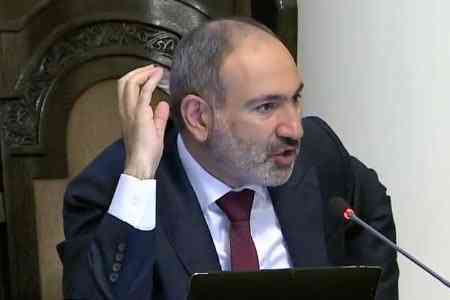


ArmInfo. The feasibility of building a new nuclear power unit in Armenia was presented to Prime Minister Nikol Pashinyan at the Nuclear Safety Regulatory Committee.
According to the prime minister's press service, Nikol Pashinyan noted that, without knowing professional nuances, from a political perspective he considers the option of building small modular nuclear reactors in Armenia interesting. "In case of an accident, they do not require the creation of emergency response zones. In other words, if an accident occurs, we will not apply measures to protect the population within a radius of one hundred kilometers," the prime minister said. In response, officials stated that the accident is classified as internal; for these reactors, the concept of an external accident is abolished.
Speaking about further steps in the construction of a new nuclear power unit, the Prime Minister noted that first we need to think about forming a company that will implement the project.
Acting Chairman of the Committee Khachatur Khachikyan and his deputies reported to the head of the Cabinet on the activities carried out in 2023. In particular, the Prime Minister was presented with the work of the Committee in the field of the use of atomic energy, aimed at ensuring the safety of the population, facilities using atomic energy, protecting the population and the environment from the possible harmful effects of ionizing radiation.
It was noted that, within the framework of control over nuclear facilities, measures are continuing to improve the safety of the Armenian NPP and fulfill the conditions and requirements of the license to operate the second power unit. Inspections were carried out, reports were analyzed, and project documents were studied for the implementation of modifications of safety-critical systems, including the implementation of activities provided for in the National Stress Testing Plan.
In 2024, the implementation of a program to extend the life of the N2 power unit until 2036 will begin at the Armenian NPP. 20.2 billion drams will be allocated for these purposes. In parallel, a new nuclear power unit must be built in the country by the specified date. The question is the power of this unit, which must be combined with the country's energy system. Earlier, the United States offered Yerevan its option for the construction of small modular reactors, as stated by Maria Longhi, coordinator of American government assistance programs. In turn, the Russian Federation proposed its project for a power unit with a capacity of 1200 MW, but, as the Minister of Territorial Administration and Infrastructure of the Republic of Armenia Gnel Sanosyan previously pointed out, the construction of a unit of such capacity is fraught with problems, since the capacity of the entire energy system of Armenia is still the same 1200 MW. "By the end of 2023, we must make a difficult decision on the type of reactor," the minister emphasized.